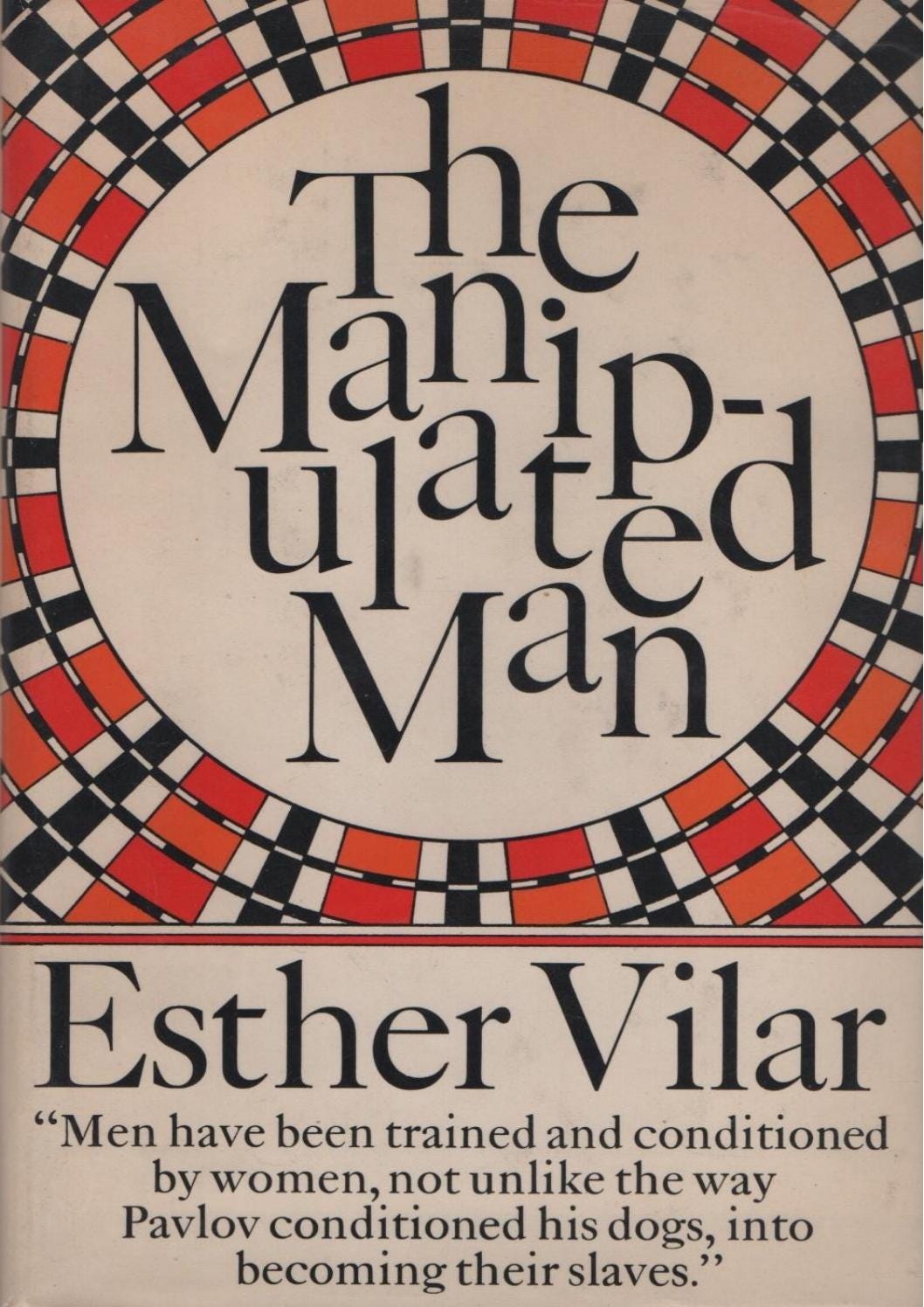Book Review : The Manipulated Man
by Esther Vilar
"The Manipulated Men" by Esther Vilar is a controversial and thought-provoking book that challenges conventional gender roles and expectations. Originally published in 1971, the book still holds relevance today as it offers a critical analysis of how men are socially conditioned to be manipulated by women and society at large.
Vilar argues that men are raised to be obedient and self-sacrificing, believing that they must provide and protect women at all costs. Women, in turn, are taught to exploit this dependency by playing the role of helpless and submissive creatures, encouraging men to serve their every whim. This dynamic, Vilar argues, is not only damaging to men, but also perpetuates gender inequality and stifles the development of healthy, equal relationships.
One of the strengths of this book is Vilar's ability to challenge readers to think critically about their own assumptions and beliefs about gender roles. She forces us to question why certain behaviors and expectations are considered "masculine" or "feminine," and whether these labels are truly helpful or harmful to our relationships and our society.
Vilar's book has been both praised and criticized for its sweeping generalizations and inflammatory language. Some readers have found her analysis to be overly simplistic, while others have been deeply affected by her ideas. Despite the controversy surrounding the book, it remains an important contribution to the ongoing conversation about gender and power in our society.
One of the central themes of the book is the idea that men are manipulated by women and society into taking on roles that are harmful to them. Vilar argues that men are taught to be subservient to women, to put their needs above their own, and to suppress their emotions in order to meet societal expectations. Women, in turn, are taught to be passive and dependent on men, using their perceived weakness to manipulate men into serving their every whim.
Vilar's analysis of gender roles is rooted in her belief that these roles are not natural, but rather social constructs that have been created and perpetuated by society. She argues that gender roles are not fixed, but rather are constantly evolving, and that men and women have the power to challenge and change these roles if they choose to do so.
Throughout the book, Vilar draws on examples from literature, mythology, and popular culture to illustrate her ideas. She also presents statistical data to support her arguments, such as the fact that men make up the majority of workplace fatalities, and that men are more likely to die by suicide than women.
Despite its provocative nature, "The Manipulated Men" has been widely read and discussed since its publication. It has been translated into multiple languages, and has inspired both praise and criticism from readers and critics alike. Some have hailed Vilar as a feminist icon, while others have accused her of being a misogynist. Regardless of one's opinion of the book, it remains an important and influential work in the ongoing conversation about gender and power in our society.


